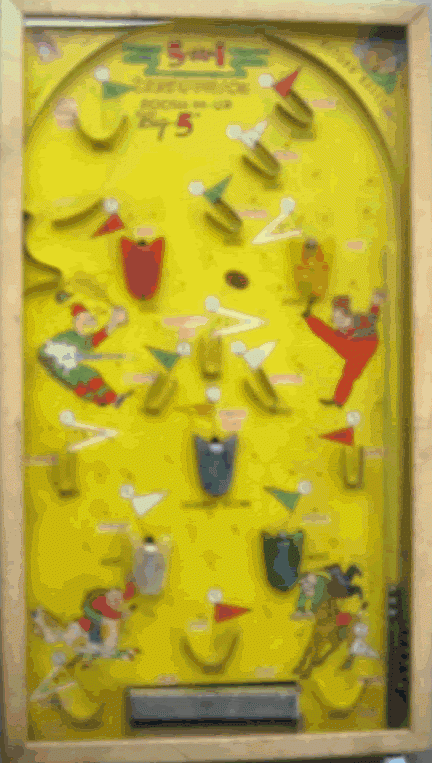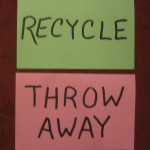I like to think of myself as a pretty decent recycler. I put paper, bottles, cans, and appropriate plastics out for curbside recycling. I decline plastic bags at stores and use my cloth bags instead. I take a reusable water bottle to meetings. I take #5 recyclables to Whole Foods. I compost. I even collect neighborhood recyclables that I find during my daily walk. This is good, but I was recently awakened to how to stretch the good.
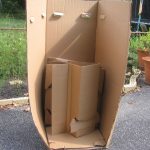 The other day while I was walking I saw a store that had quite a few cardboard boxes out for the garbage. It was garbage day but not recycling day so I asked the store owner if he realized that if he just waited a week to the scheduled recycling day, these boxes could be recycled rather than go to a landfill. He did not receive my suggestion well but said with a smirk that I was welcome to carry the boxes home and do it myself. There were too many for me to carry so I declined. Later in my walk I was half a block from home and saw a large box with several smaller pieces of cardboard inside. Since I was close to home I dragged the cardboard home, collapsed the box, and saved it for the next recycling day.
The other day while I was walking I saw a store that had quite a few cardboard boxes out for the garbage. It was garbage day but not recycling day so I asked the store owner if he realized that if he just waited a week to the scheduled recycling day, these boxes could be recycled rather than go to a landfill. He did not receive my suggestion well but said with a smirk that I was welcome to carry the boxes home and do it myself. There were too many for me to carry so I declined. Later in my walk I was half a block from home and saw a large box with several smaller pieces of cardboard inside. Since I was close to home I dragged the cardboard home, collapsed the box, and saved it for the next recycling day.
This got me to thinking that no matter how good I am at recycling as an individual, it is a miniscule contribution to an important effort. If just one store which receives multiple boxes every day would recycle them, it would make a difference. If several stores in my neighborhood recycled their boxes, it would make a bigger difference. I call this The Multiplier Effect. It doesn’t mean that individuals should give up their home recycling efforts but I now look upon these as basically consciousness raising actions. It has motivated me:
 To become involved in an environmental group (The Pachamama Alliance) that works to make a more sustainable, just, spiritually fullfilling human presence in our world.
To become involved in an environmental group (The Pachamama Alliance) that works to make a more sustainable, just, spiritually fullfilling human presence in our world.- To alert (some would say pester) my own neighborhood stores to save their boxes for recycling day.
- To work on helping the institutions that I am connected with (schools, churches, organizations) to evaluate how they go about their business. For example, My taking a reusable water bottle to a meeting is good, but how much better if the conveners of the meeting didn’t buy cases of bottled water for participants when there are water fountains all over the school. Or pitchers of water could be provided with washable glasses. It might be a bit more work but many individuals would start to carry their own reusable bottles.
 To sign up for Arcadia Power which uses wind energy instead of fossil fuel energy for our home electricity use. The multiplier is that I’ve passed this information on to various groups I’m connected with. As more people do this, it also moves our country toward alternative energy sources. It has cost our family about $5 a month extra to buy this wind energy which is handled through our local energy company. (If you care to sign up for Arcadia and get a $25 discount – we also get the same $25 discount – click here. Once you start using Arcadia you can then pass this discount on to others if you wish.)
To sign up for Arcadia Power which uses wind energy instead of fossil fuel energy for our home electricity use. The multiplier is that I’ve passed this information on to various groups I’m connected with. As more people do this, it also moves our country toward alternative energy sources. It has cost our family about $5 a month extra to buy this wind energy which is handled through our local energy company. (If you care to sign up for Arcadia and get a $25 discount – we also get the same $25 discount – click here. Once you start using Arcadia you can then pass this discount on to others if you wish.)
The point is to look for ways to multiply your effort by getting friends and institutions to do similar actions. Voluntary changes are wonderful, but also consider working on a governmental level. Supporting legislation that multiplies environmental improvements on a national scale can make a world changing difference. Keep thinking bigger – not getting more stuff but more people doing the little stuff. (You can tweet that.)
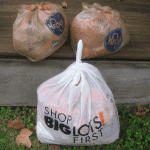
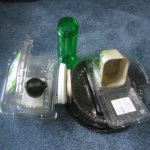



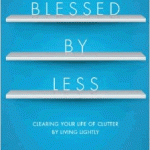




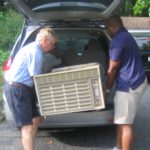
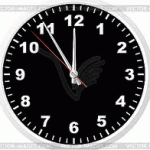

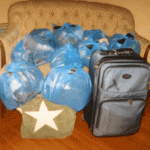

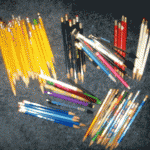


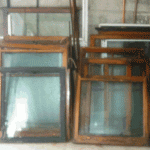

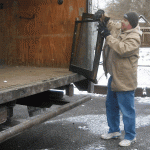
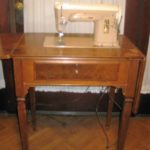
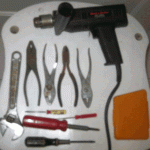

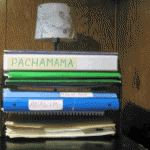
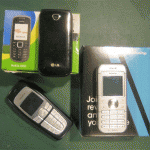
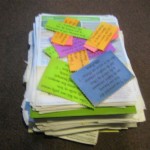





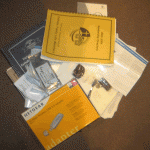

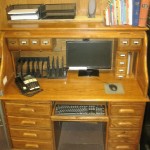
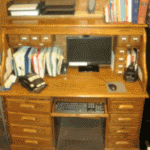

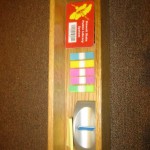


 Since my first round of pruning our clothes closet in 2010, I’ve slowly been passing clothes on that I seldom wear, but I never actually emptied it out. This time I took my own advice and started from ground zero. The first photo shows the left half of our closet with all my suits, skirts, pants, dresses, and blouses removed.
Since my first round of pruning our clothes closet in 2010, I’ve slowly been passing clothes on that I seldom wear, but I never actually emptied it out. This time I took my own advice and started from ground zero. The first photo shows the left half of our closet with all my suits, skirts, pants, dresses, and blouses removed.

